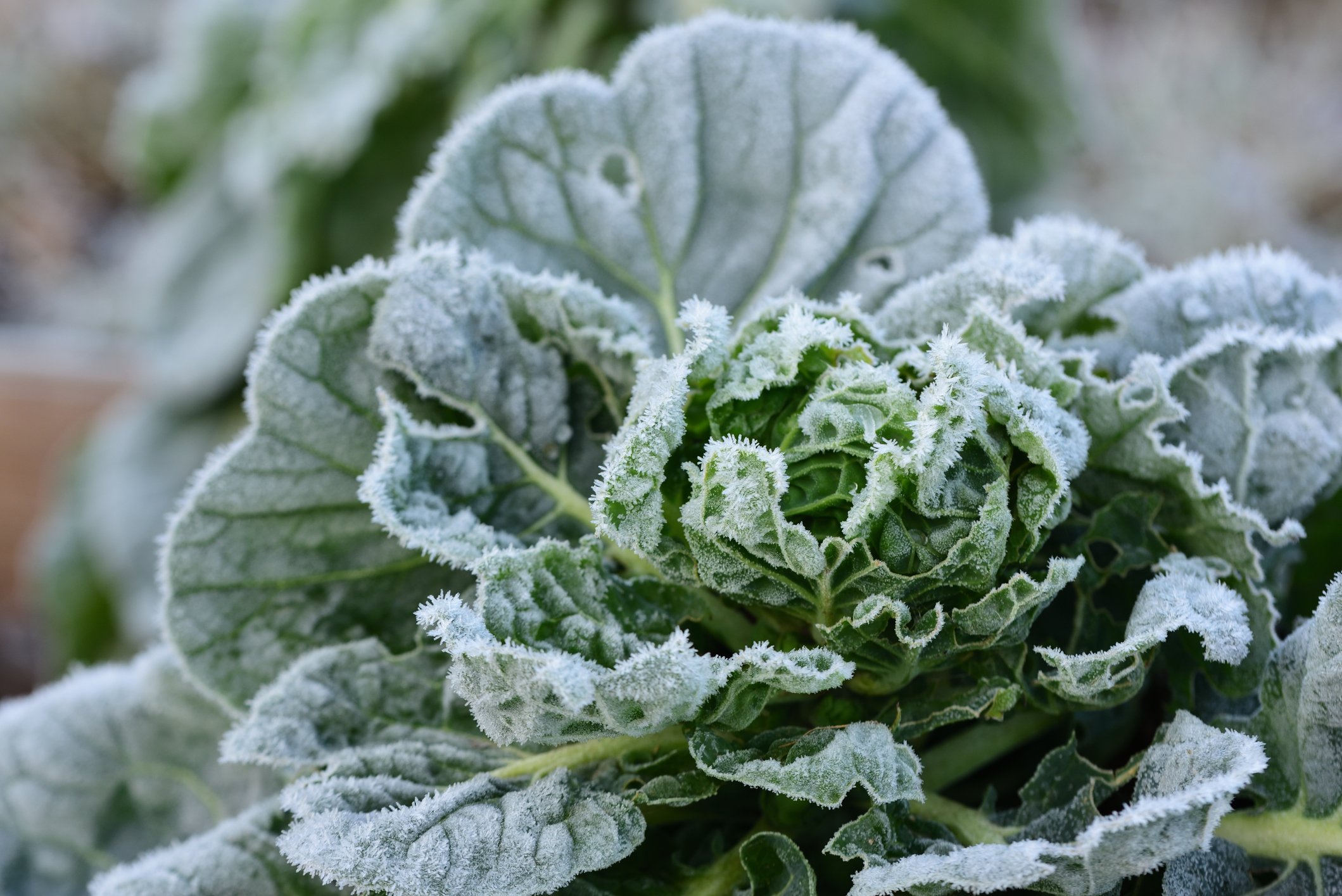Vegetables vary widely in how much cold they can tolerate as they reach maturity. Crops that came from warmer parts of the world cannot tolerate even a light frost, and may even begin to suffer at temperatures below 50 degrees Fahrenheit. Basil is an extreme example of this, as the leaves can turn black when the temperatures dip into the 40s. Other plants are a little more tolerant, and warm temperatures following a short cold exposure can reverse some of the injury. For example, pumpkins can withstand 35 degree Fahrenheit nights if daytime temperatures reach70 degrees Fahrenheit or more.
No Frost Tolerance
The following vegetables are not cold tolerant, and they should be protected from frost or harvested before even a light frost:
- Beans
- Sweet Corn
- Potatoes
- Pepper, eggplant
- Cucurbits: Cucumbers, summer squash, melons (pumpkins and winter squash may be able to tolerate very light frosts, but it is better to protect them if possible).
- Sweet potatoes (ideally should be harvested before soil temperatures drop below 50 degrees Fahrenheit).
These vegetables also will not tolerate frost, but they will ripen further after picking, so they can be harvested before they are fully mature:
- Tomatoes: Must be at least “mature green” (changed from the deep-green to almost turning red).
- Muskmelon: Must “slip” easily from the vine, but can ripen further at room temperatures.
- Pumpkins: If they are starting to turn color, they will continue to turn color. However, their keeping quality will generally not be as good as those that were able to turn color while on a healthy green vine.
Light Frost Tolerance
Crops from more-temperate regions can withstand light freezes (28 to 32 degrees Fahrenheit):
- Beets
- Carrot
- Cauliflower
- Lettuce
- Onion, Garlic, Chives
- Parsley
- Peas
- Radish
- Rhubarb
- Spinach
- Swiss chard
Frost Hardy
Some crops will improve flavor with exposure to cooler temperatures. Root crops develop more sugars when the soil temperature is below 40 degrees Fahrenheit; and Brussels sprouts are often best after a light freeze.
Among the hardiest vegetables are cole crops, which can tolerate moderate freezes (24 to 28 degrees Fahrenheit) :
- Broccoli, cauliflower (26 degrees Fahrenheit)
- Chinese cabbage, cabbage, kale, kohlrabi, turnip
For best quality, harvest after several moderate freezes (24-28 degrees Fahrenheit):
- Parsnips, salsify
- Brussels sprouts
Harvest after several severe freezes (under 24 degrees Fahrenheit):
- Horseradish (it can be stored in-ground overwinter with mulch).




